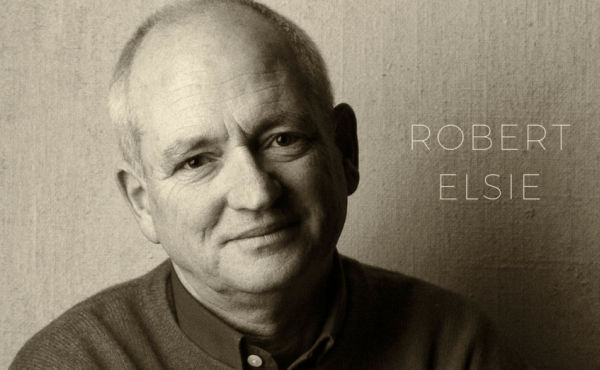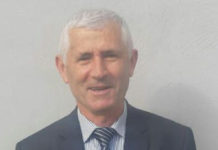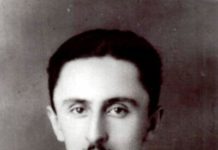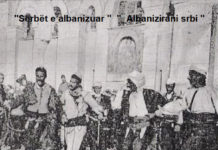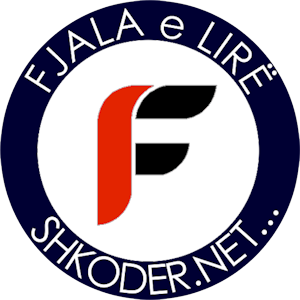Mauro Geraci
Robert Elsie left us and left us a really immense job that will never leave us. He has left us a work without which many, scholars and fans around the world, would hardly know or know about the great literary history of Albania.
One can say, without a shadow of doubt, that Robert Elsie it was the scholar who, more than anything else, has been able to bring to the surface, making it clear and available to everyone, the philological, linguistic, historical, criticism of the tumultuous and contrasted Albanian literary phenomenon.
Also published in English her literary stories have cast a new and high light on the long run of Albanian literature, from the Middle Ages to our days; are literary stories of encyclopaedia that, in a long-term perspective and on a large scale, show what are the recurring ideological traits, themes, mythical and rhetorical figures, the mosaic of symbols as well as the proverbial and linguistic expressions that they intertwine, in a continuous shift of footage, suddenly disappeared and returned.
I believe that the stories of the Albanian literature realized by Robert Elsie are inevitable today for anyone who wants to frame a particular author, repertoire or poetic aspect in the more general picture of Albanian and European cultural history; so it also applies to its Historical Dictionary of Albanians completed in the last years of life.
Extraordinarily documented works, full of data, information, examples, testimonies, anecdotes, bibliographic references, but not confused or asymmetrical. In contrast, Robert Elsie’s encyclopedic studies shine through systematics, methodology, source control, historical and theoretical coherence; the reader does not lose it, in fact finds in Elsie a clear, lucid guide to all the interpretive possibilities of looking at the various aspects of fatal Albania , poetic and literary.
An absolute scientific rigor, however, also applies to the dissemination volition that is applied in the great web portal that the scholar has realized and will remain available to all those who want to go into words, personalities, images, feelings, dramas ‘Albania of yesterday and today.
I also turned to his works and to him personally when, since 2002, I began to venture into the complicated anthropological path from which, I can say, I have not yet come out despite the publication in 2014 of the massive Prometheus in Albania. Literary and political passages of a Balkan country .
In an attempt to trace the “prometheism” that characterizes and makes of contemporary Albanian literature perhaps the main instrument of transformation or political transition of the country, I addressed him with letters.
Very helpful and timely were the answers, the confirmations and the stresses received by the scholar. Then I got to know him in Tirana in 2015, at the Academy of Sciences .
He had already read my study of the Albanian prometheism I sent him a few months ago in Germany where he lived and showed me his interest, also because he had already studied the promethean symbolism in the poem of Visar Zhiti who had translated into English, in the beautiful anthology and critical exegesis titled The condemned apple I went to Los Angeles in 2005.
And it struck me as if in speaking it was able to find every aspect of literary, artistic, folkloric, cinematic, poetic-musical references. Robert Elsie had a deep encyclopedic culture today more than ever rare.
So even after his disappearance, his works remain as a mine of information to testify that his very thorough specialist knowledge would not end in itself or be powered only by localistic perspectives but how, on the contrary, would lead to newer , ample and ambitious scenarios of knowledge where data, fields, perspectives, intuitions are crossed.
In fact, scroll through the vast bibliography of the works produced by the scholar to realize the ongoing dialogical current that he himself established and always maintained between the level of detail and that of the general; between the meticulous attention he translate and investigate the great poem of Gjergj Fishta or the poems of Visar Zhiti and the one with which he knows how to look for aspects and figurations that make the brilliant fruits of a wider Albanian cultural history.
Each of the many historical, glottological, and philological essays with which Elsie deepens specific portions of the Albanian linguistic and literary history represent in fact the wording of a more general cultural mosaic that the scholar outlines, to the end, in the works of wider breath.
In this sense, if it remains indispensable for those who will continue to venture into the aspro, sweet terrain of albanology, that of Robert Elsie will forever remain a persevering and loving lesson of Humanism.
https://www.albanianews.it/notizie/opinioni/robert-elsie-albania-poetica


